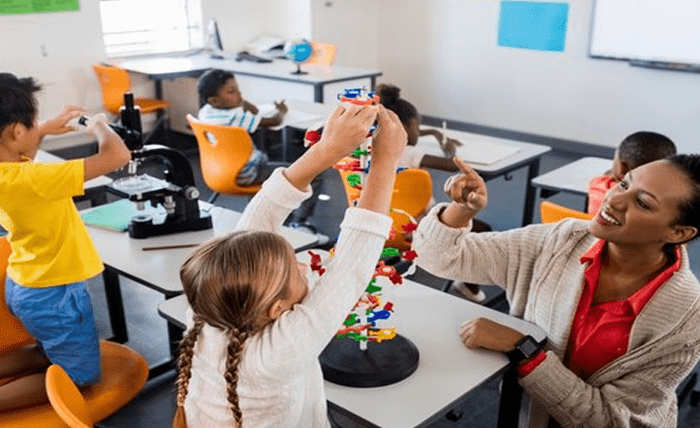
The first five years are critical for brain development, as neural connections form rapidly. Early childhood education supports cognitive, social, emotional, and physical growth, preparing children for academic success. Research highlights long-term benefits, including better school readiness, higher graduation rates, and improved career prospects.
The Transformative Benefits of Early Childhood Education
Cognitive Development Takes Flight
During the early years, children’s brains develop at an unprecedented pace. Quality early childhood programs capitalize on this natural growth period by introducing age-appropriate learning experiences that stimulate cognitive development.
Children in structured early learning environments demonstrate enhanced language skills, improved mathematical reasoning, and stronger problem-solving abilities. They learn to recognize patterns, understand cause-and-effect relationships, and develop critical thinking skills that serve them throughout their educational journey.
Memory formation also benefits significantly from early educational experiences. Children who engage in structured learning activities show improved working memory and better information retention, skills that directly translate to academic achievement in elementary school and beyond.
Social Skills Flourish in Group Settings
Early childhood education provides children with their first meaningful opportunities to interact with peers outside their family circle. These interactions teach essential social skills that cannot be learned in isolation.
Children learn to share resources, take turns, and collaborate on projects. They develop empathy by observing and responding to their peers’ emotions, building the emotional intelligence necessary for healthy relationships throughout life.
Conflict resolution skills emerge naturally in group settings, as children learn to navigate disagreements and find mutually acceptable solutions. These experiences teach negotiation, compromise, and the importance of considering multiple perspectives.
Emotional Regulation Develops Through Structure
Structured early childhood programs help children develop emotional self-regulation—the ability to manage their feelings and behaviors appropriately. Daily routines and consistent expectations provide the predictability children need to feel secure while learning to control their impulses.
Children learn to identify and express their emotions in healthy ways, reducing behavioral problems and increasing their ability to focus on learning tasks. This emotional foundation proves crucial for later academic success, as children who can regulate their emotions are better equipped to handle the challenges of formal schooling.
The Power of Play in Early Learning
Play serves as the primary vehicle for learning in early childhood, making it far more than simple entertainment. Through play, children explore their world, test hypotheses, and develop understanding in natural, engaging ways.
Unstructured play allows children to exercise creativity and imagination while developing independence and decision-making skills. Building with blocks teaches spatial relationships and engineering concepts, while imaginative play with dolls or action figures helps children process emotions and practice social scenarios.
Structured play activities, guided by trained educators, can target specific learning objectives while maintaining the joy and engagement that make play effective. Games that involve counting, sorting, or pattern recognition introduce mathematical concepts without the pressure of formal instruction.
Physical play contributes to gross and fine motor development, coordination, and body awareness. Activities like climbing, running, and manipulating small objects prepare children for the physical demands of writing and other academic tasks.
Exploring Different Educational Approaches
Montessori Method: Child-Led Discovery
The Montessori approach emphasizes child-directed learning within a carefully prepared environment. Children choose their own activities from a range of options, working at their own pace while developing independence and self-motivation.
Mixed-age classrooms allow younger children to learn from older peers while giving older children opportunities to reinforce their knowledge by helping others. This approach fosters natural mentorship and builds confidence in children of all ages.
Waldorf Education: Nurturing the Whole Child
Waldorf education focuses on imaginative play, artistic expression, and hands-on learning. Academic instruction is delayed until children are developmentally ready, typically around age seven, allowing more time for creative and social development.
This approach emphasizes storytelling, music, and crafts as pathways to learning, believing that children learn best when education engages their hearts and hands alongside their minds.
HighScope Approach: Active Learning Framework
The HighScope method combines child-initiated activities with teacher guidance through a “plan-do-review” sequence. Children make choices about their activities, carry them out, and then reflect on their experiences with adult support.
This approach develops executive function skills and helps children become intentional learners who can set goals and evaluate their progress.
The Critical Role of Qualified Educators
The quality of early childhood education depends heavily on the knowledge, skills, and dedication of the educators who implement it. Trained early childhood professionals understand child development stages and can recognize when children need additional support or enrichment.
Qualified educators create learning environments that are both stimulating and secure, balancing structure with flexibility to meet individual children’s needs. They observe children carefully, documenting progress and adapting activities to support each child’s growth.
Professional development for early childhood educators ensures they stay current with research-based practices and continue refining their skills. Child care like that offered in Sandy benefits greatly from having well-trained, stable teaching staff, as programs with such teams consistently produce better outcomes for children than those with high teacher turnover or inadequately prepared staff.
Maximizing Parental Involvement in Early Learning
Parents serve as children’s first and most influential teachers, making their involvement in early childhood education crucial for optimal outcomes. When parents actively participate in their children’s learning, both at home and in educational settings, children show greater progress and enthusiasm for learning.
Reading together daily creates strong foundations for literacy development while building emotional bonds. Parents who engage in conversations with their children, asking open-ended questions and listening to responses, support language development and critical thinking skills.
Extending learning activities from school to home reinforces concepts and shows children that learning happens everywhere. Simple activities like counting during grocery shopping or identifying shapes during walks make learning part of daily life.
Communication between parents and educators ensures consistency between home and school environments. Regular conversations about children’s progress, interests, and challenges allow for coordinated support that maximizes learning opportunities.
Conclusion
Early childhood education fosters social skills, emotional growth, and a love for learning, while improving graduation rates and reducing special education needs. Quality programs with skilled staff and family involvement lead to lifelong success and stronger communities.



